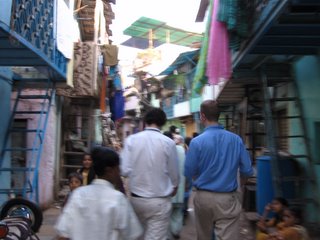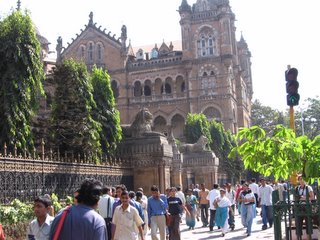Instead of talking about different diseases and infections that I’ve seen the last couple of days, I’d like to address some of the dissimilarities I’ve seen from a cultural standpoint. Since the majority of my day is spent with patients, I see people here under unique situations. There are obvious similarities that all sick people share, most notably the desire to feel better and to do so quickly. No one likes being sick or hurt. I have attempted previously to describe what doctor’s offices and hospital clinics are like. The small space where people dance around each other to get in and out, the speed with which the examination and diagnosis are made, the volume of patients seen in a day, are all staggering. But within this description I haven’t mentioned one of the peculiarities of the doctor’s appointment. In the western culture this appointment is a private matter but in India almost no one sees the doctor alone. Everyone brings along a friend or family member—not only to the waiting room but to the examination as well. Even in the slum clinic where the exam room barely holds the doctor, a medical assistant, two student observers, and an in-house pharmacist, the patient will come in with at least one companion. When privacy is warranted a curtain is pulled across a shower pole only to have everyone peer through the sides. The curtain seems more for reassurance than anything except when the door to the examination room is opened. In a country of one-billion people privacy doesn’t seem to exist, personal space shrinks and people are comfortable with one another’s presence. Men hold hands or put their arms over one another’s shoulder as a sign of friendship. Their proximity becomes a physical sign of their closeness. So, a cousin witnessing a tetanus shot in the butt isn’t weird. To them. Out of thirty patients maybe five will come alone due to infections in the crotchal region, although even this doesn’t prohibit a tag-a-long.
Another difference to life back home is the vendor-customer relationship. Street vendors expect you to bargain over a price but an established store will have established prices. Salesmen here are aggressive and so any slight show of interest triggers their full attention. If you seem to like a particular shirt they will bring out at least three more that are similar, if you don’t like the price they will bring at least two of lower cost. When you attempt to leave the store they will do everything in their power to keep you there, even to the point of complaining that you wasted their time for not buying anything. My roommate went to get a suit tailor-made and while sorting through the hundreds of cloth patterns we were served our drinks of choice. Shopping here is an all-day affair here. Not for the squeamish, it requires the buyer to be assertive and firm in response to the vendor’s torrential pushiness. After my minimal experience in India’s consumer culture, I’m afraid to see what their car salesmen are like, they must be dangerous.






0 Comments:
Post a Comment
<< Home